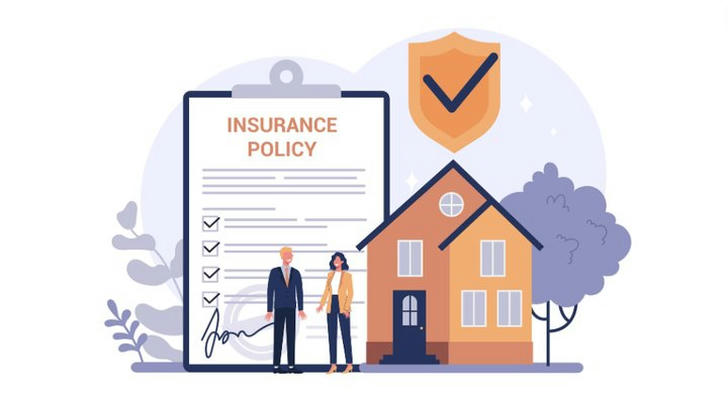What Should Seniors Pay Attention to When Buying Home Insurance? And How Can They Save Money?
Introduction
When buying home insurance, seniors should pay attention to a few key things: making sure their home is properly covered, understanding what the policy does not cover, and being aware of any age-related discounts or special offers. Additionally, they should consider coverage for personal belongings and liability protection. To save money, seniors can compare quotes from different companies, take advantage of discounts for home safety features, and consider bundling policies. Smart planning ensures they get the best coverage without overspending.
What Are the Key Factors Seniors Should Consider When Buying Home Insurance?

Coverage for the Home Itself
•Why It Matters: Ensuring your home is fully covered against damage from events like fires, storms, or vandalism is crucial. The right coverage can help repair or rebuild your home without large out-of-pocket expenses.
•What to Look For: Choose a policy that covers the full replacement cost of your home. This means the insurance will pay to rebuild your home at current market prices, not just what it was worth when you bought the policy.
User Case Example:
Mary, a 70-year-old homeowner, realized that her home insurance policy only covered the market value of her house, which wasn’t enough to rebuild it after a fire. She switched to a plan that covered the full replacement cost, giving her peace of mind that her home could be fully restored if something happened.
Personal Belongings Coverage
•Why It Matters: Your personal belongings, like furniture, electronics, and clothing, are valuable and need to be protected against theft or damage.
•What to Look For: Ensure your policy covers the replacement cost of your belongings, not just their current value. Some policies also offer additional coverage for high-value items like jewelry or antiques.
Liability Protection
•Why It Matters: Liability coverage protects you if someone gets injured on your property and decides to sue. It can cover legal fees, medical bills, and other related costs.
•What to Look For: Choose a plan with high liability coverage, especially if you frequently have visitors or live in a high-traffic area.
User Case Example:
John, a 75-year-old retiree, regularly hosted neighborhood gatherings at his home. After one of his guests slipped and fell, John’s liability insurance covered the medical bills, avoiding a costly lawsuit. He was glad he had chosen a policy with strong liability protection.
Age-Related Discounts and Special Offers
•Why It Matters: Many insurance companies offer discounts to seniors, which can significantly reduce the cost of home insurance.
•What to Look For: Check if your insurance provider offers discounts for seniors, and inquire about any additional savings for having home safety features like smoke detectors, security systems, or impact-resistant roofing.
When looking for pet insurance, it's helpful to know about different discounts that could save you money. For example, if you're over 65, you might qualify for a senior discount, which can reduce your premium by 10%. If you have safety features in your home, like smoke detectors and a security system, you could get a 15% discount. And if you bundle your pet insurance with another policy, like auto insurance, you might be eligible for a multi-policy discount, which could save you up to 20%. These discounts can make a big difference in how much you pay, so it’s worth checking if you qualify!
What Are Some Tips for Saving Money on Home Insurance for Seniors?

Compare Different Plans
•Why It Helps: Insurance premiums can vary greatly between providers, so it’s important to shop around.
•How to Do It: Use comparison websites to view different policies side by side. This allows you to find the best coverage at the most affordable price.
Install Home Safety Features
•Why It Helps: Adding safety features like smoke detectors, burglar alarms, or a sprinkler system can reduce your insurance premiums.
•How to Do It: After installing these features, notify your insurance company to see if you qualify for a discount.
Bundle Insurance Policies
•Why It Helps: Bundling your home insurance with other policies, like auto insurance, can lead to significant discounts.
•How to Do It: Contact your current insurance provider to see if they offer discounts for bundling, or shop for a new provider that does.
Sample Bundling Savings
Bundling your insurance policies can lead to significant savings. For instance, if you have separate home and auto insurance, you might pay $500 a year for home insurance and $300 a year for auto insurance, totaling $800 annually. However, by bundling these policies together, your home insurance could drop to $450 a year, and your auto insurance to $270 a year. This means you could save $80 a year just by combining your policies, making it a smart way to cut down on costs while keeping your coverage.
Review Your Policy Annually
•Why It Helps: Your insurance needs can change over time, so it’s important to review your policy regularly to ensure you’re not paying for unnecessary coverage.
•How to Do It: Set a reminder to review your policy every year and make adjustments based on any changes in your home’s value, renovations, or other factors.
What Are Some Common Mistakes to Avoid When Buying Home Insurance?

Not Reading the Fine Print
•Why It’s Important: Insurance policies can have complex terms that might limit your coverage in unexpected ways.
•What to Do: Carefully read your policy’s terms and conditions to understand what is and isn’t covered, including any exclusions or limitations.
Underinsuring Your Home
•Why It’s Important: If your coverage limits are too low, you might not receive enough money to fully repair or rebuild your home after a disaster.
•What to Do: Make sure your policy covers the full replacement cost of your home and its contents.
Overlooking Coverage for Natural Disasters
•Why It’s Important: Standard home insurance policies often don’t cover damage from floods, earthquakes, or hurricanes.
•What to Do: If you live in an area prone to natural disasters, consider adding additional coverage or a separate policy for those risks.
Choosing the Cheapest Option Without Checking Coverage
•Why It’s Important: The cheapest policy might not provide adequate coverage, leading to high out-of-pocket costs in the event of a claim.
•What to Do: Compare the coverage options of different policies, not just the price, to ensure you’re getting the protection you need.

Conclusion
Choosing the right home insurance is essential for seniors. It ensures your home, belongings, and liability are well-covered in case of unexpected events. To save money, compare different insurance options, install safety features, and consider bundling policies. By selecting the best plan and taking advantage of cost-saving tips, you can protect your home without overspending.
